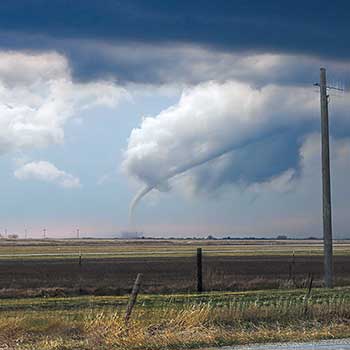Most property insurance policies contain a provision permitting the insurer to take sworn testimony from the insured. This process is called an Examination Under Oath (“EUO”), which is used to learn information about the claimed loss and to obtain relevant documents in the insured’s possession. See our Blog in July 2017, titled: EXAMINATION UNDER OATH Q&A For First-party Claims.
However, the insured is not the only person who the insurance company may examine under oath – third parties are also subject to EUO’s.
First-Party Claims vs. Third-Party Claims
It is important to understand the distinction between first-party claims and third-party claims.
A first-party insurance claim is one brought by the policyholder. In this case, the insurance company will compensate the policyholder for a loss based on the terms of his or her insurance policy. The company may ask the policyholder to participate in an EUO to help determine its obligations under the insurance policy. The duty of the policy holder to cooperate with the EUO process in first-party claims is well established. However, that is not the case with third-party insurance claims.
A third-party insurance claim is one brought by someone other than the policyholder or the insurance company. Essentially, any claim that is not made by the policyholder is considered to be a third-party claim. For example, your homeowner’s insurance policy likely includes a third-party liability provision, which protects you and members of your household from claims alleging that you injured other people or damaged their property. If a third-party alleges that he or she was injured on your property, that person might file a claim against you. In that case, your insurance company may ask the third-party to participate in an EUO to help determine what happened and whether the alleged injury is covered under your insurance policy.
The Examination Under Oath Process
Here is what to expect if an insurance company requests EUO participation by a third-party:
- The insurer will formally request an EUO. The request should be made in writing and include a date, time, and place for the EUO. The insurer’s demand may be considered insufficient if it does not include a specific date, time, and place.
- The third-party may request a more convenient date, time, and location.
- The EUO letter will also specify what documents the insurance company wants brought to the EUO. In a third-party’s case, the insurer might want photos, videos, and receipts of expenses incurred because of the property damage. The insured may also be asked to provide expense receipts, repair estimates and other relevant documents.
- The third-party will be asked questions about the claimed loss.
- It is also possible that the insurer will identify other relevant documents or witnesses during the examination. The insurer may then request that the third-party provide those documents and contact information for the relevant witnesses.
Note that there are legal consequences to refusing to participate in an EUO. Contact an experienced attorney if you receive an EUO demand letter.
Let Us Help You with Your Case
Whether you are the policy holder or a third-party claimant, you should ALWAYS participate in any EUO with an experienced attorney present. You also should not ignore the insurance company’s demand for an EUO, as there may be potential legal consequences for refusing to participate. Don’t worry – Rest Easy. The Florida attorneys at the Insurance Litigation Group have handled hundreds of EUO’s and have the knowledge and experience to guide you through the EUO process. Contact us today for a free consultation.






